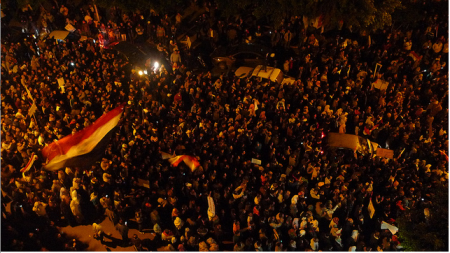Patrick Appel, at the Daily Dish, points out a (paper) in the journal Public Choice on why some major revolutions, like Egypt’s, so often come as a surprise to everyone.
Kuran (1989) posits that people tend to hide the fact that they are opposed to the government, especially repressive governments, which makes a lot of sense if you think about it. Then when some odd thing, which might seem unrelated to anything, happens, and the opposition to the government starts to look like it might be able to win, then everyone piles onto the bandwagon and a revolution occurs.
Unlikely though the revolution may have appeared in foresight, it will in hindsight appear inevitable because its occurrence exposes a panoply of previously hidden conflicts.
—Kuran (1989) in Sparks and prairie fires: A theory of unanticipated political revolution.
Two weeks ago, practically everyone thought that Egypt was too stable, and Mubarak too entrenched to by ousted. A lot of commentators wished the Egyptian regime would go after Tunisia’s, but they pretty uniformly agreed that it was too strong.
